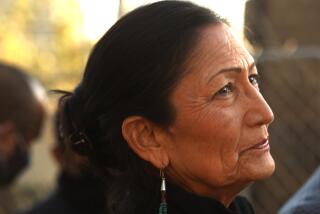Images of Adoption--and of Confusion
The images of Baby Jessica and Michael Stenbeck--and other children at the center of recent complex, high-profile adoption battles--have stayed with us long after the legal wrangles no longer generated news stories. These are just some of the children whose lives were suspended in a prolonged limbo between their biological parents and their adoptive parents after legal proceedings, originally expected to be routine, turned out to be anything but.
The legal issues in these cases differed, but at the heart of each was confusion--confusion over which state’s law applied in interstate proceedings, over how courts should balance the rights of parents with the needs of the child, and over the rights of a biological father versus those of the biological mother.
It is this sort of confusion--confusion that arose in countless earlier but no less troubling cases--that has prompted a long-overdue effort to standardize and modernize state adoption laws.
Over the last five years, a committee of lawyers has been drafting a Uniform Adoption Act. The panel, a subdivision of the National Conference of Commissioners on Uniform State Laws, plans to release a final version early next year. The model law will then be considered by state legislatures across the country. The act, already released in draft form, covers all legal aspects of adoption, from whose consent is needed to who may adopt an adult.
By its nature, a uniform act, if accepted substantially intact by all states, would eliminate most of the legal conflicts that so often plague adoption proceedings across state lines. That alone would be an improvement. The custody battle over Baby Jessica, initially released for adoption by her Iowa biological mother to a Michigan couple, was heard by no less than seven courts in the two states over two years. Last summer, the toddler was finally returned to her birth parents in Iowa. But the protracted dispute was emotionally wrenching for all involved.
A uniform standard could eliminate confusion and forestall heartache by clarifying other issues in dispute between biological and adoptive parents. In Michael Stenbeck’s case, for example, the San Diego toddler was adopted at the request of his unwed biological mother. The boy’s biological father, who has a history of drug and alcohol abuse, initially agreed to adoption but later sought custody from the couple with whom Michael has lived since birth. His custody battle, to date unsuccessful, has highlighted questions about the rights of birth fathers, as opposed to those of mothers.
The model adoption act may generate controversy. But the value of this effort to standardize laws affecting so many children is beyond dispute.
More to Read
Sign up for Essential California
The most important California stories and recommendations in your inbox every morning.
You may occasionally receive promotional content from the Los Angeles Times.










